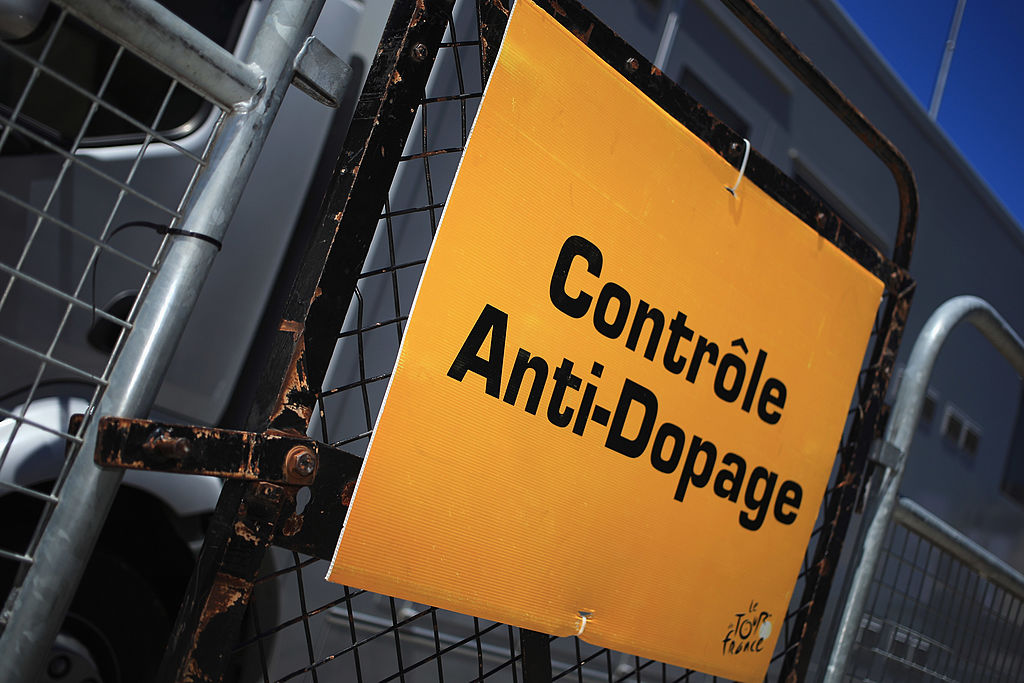Only 5% of anti-doping tests carried out due to lockdown
Lappartient confident doping during COVID-19 lockdown can be discovered by Biological Passport

UCI president David Lappartient has revealed that the COVID-19 global pandemic has sparked a 95 per cent drop in the number of anti-doping controls carried out in the sport in recent weeks.
A number of high-profile rider have lamented the lack of control, with Romain Bardet recently saying it's been "an eternity" since the last time he was tested. Thibaut Pinot revealed he has not been tested since October, while Tom Dumoulin said there hasn't been a knock on the door "in months".
Chris Froome has been working intensely on his recovery in his personal pain cave in the south of France but told L'Équipe that he hadn’t been tested since the lockdown began on March 17, although he added: "I know that some tests are still taking place."
Anti-doping controls are carried out in competition and out of competition, with athletes in the registered testing pool obliged to provide there whereabouts information for out-of-competition testing. Testing can be requested by the UCI, WADA and National Federations, with local anti-doping officers usually carrying out the tests. The Cycling Anti-Doping Foundation are currently responsible for anti-doping in cycling before they are integrated into the recently created International Testing Agency created by the International Olympic Committee in 2021.
According to the latest available CADF Business Report, 2,474 blood tests were carried out in competition and 4,199 out of competition in 2018. 4,861 urine tests were done in competition and 3,747 done out of competition. With no racing allowed since Paris-Nice in early March and with strict lockdowns limiting the movement of anti-doping inspectors in most major cycling nations, Lappartient confirmed those numbers have fallen by 95 per cent.
"We've seen that the situation for anti-doping was quite challenging, with the lockdown in many countries, it was quite difficult to continue the programming of the tests. It was less than five per cent that were able to be delivered compared to normally," Lappartient revealed when speaking to media, including Cyclingnews, on Tuesday.
"We had some discussions with the CADF to ensure we will be back as soon as possible."
Get The Leadout Newsletter
The latest race content, interviews, features, reviews and expert buying guides, direct to your inbox!
The fight against doping has evolved in recent years to include intelligence, police evidence and specialist agency investigations, plus the biological passport, which measures variations in blood values over time to highlight possible blood doping via EPO and blood transfusions. Only one active WorldTour or Pro Continental rider – Jaime Rosón – has been sanctioned for biological passport irregularities since the UCI dropped proceedings against Roman Kreuziger following a legal challenge in 2015.
Riders have been obliged to update their whereabouts information despite being in lockdown and Lappartient hopes that testing after will soon begin as riders return to training outdoors and begin to prepare for the new race calendar confirmed for between August and November.
"With the biological passport, we'll be able to see if there where some manipulations between the beginning and ending of the lockdown. We are quite confident we are able to discover if we have some doping behaviour in the middle of this period," Lappartient claimed.
"The CADF will do its best to ensure the credibility of our sport for the second part of the season."

Stephen is one of the most experienced member of the Cyclingnews team, having reported on professional cycling since 1994. He has been Head of News at Cyclingnews since 2022, before which he held the position of European editor since 2012 and previously worked for Reuters, Shift Active Media, and CyclingWeekly, among other publications.